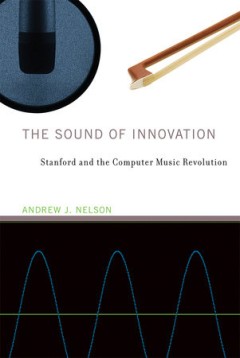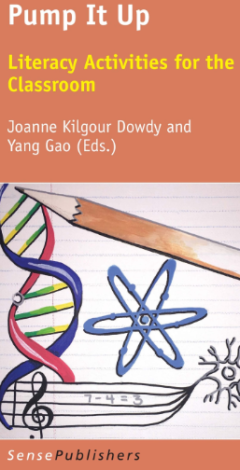Filter by

Sotsgorod; The Problem of Building Socialist Cities
Tak lama setelah kematian Arthur Sprague pada tahun 1968, teman-teman dan rekan akademisnya di Universitas Columbia memutuskan bahwa setidaknya sebagian dari karya yang telah dikerjakannya harus dipublikasikan. Karya ini terutama di bidang arsitektur Rusia dan perencanaan kota antara dua Perang Dunia, yang mungkin merupakan aspek gerakan modern yang paling tidak dapat diakses oleh para sarjana …
- Edition
- -
- ISBN/ISSN
- 9780262367820
- Collation
- 1 online resource (x, 143 pages)
- Series Title
- Urban Design
- Call Number
- 711.4 MIL s

The Staircase, Volume 2; Studies of Hazards, Falls, and Safer Design
John Templer telah menulis analisis teoritis, historis, dan ilmiah pertama tentang salah satu elemen bangunan paling mendasar dan universal: tangga. Bersama-sama, kedua volume ini menyajikan studi terperinci tentang tangga dan landai--seni dan sains desainnya, sejarahnya, dan bahayanya. Bagi desainer dan sejarawan seni dan arsitektur, volume pertama membahas sejarah tangga yang menarik dan peng…
- Edition
- -
- ISBN/ISSN
- 9780262367806
- Collation
- 1 online resource (xiv, 185 pages)
- Series Title
- Architecture
- Call Number
- 721.8 TEM s

An outcast of the islands
- Edition
- -
- ISBN/ISSN
- -
- Collation
- xi, 367 p. ; 17 cm
- Series Title
- -
- Call Number
- 7007
- Edition
- -
- ISBN/ISSN
- -
- Collation
- xi, 367 p. ; 17 cm
- Series Title
- -
- Call Number
- 7007

Billiards simplified
- Edition
- -
- ISBN/ISSN
- -
- Collation
- xviii, 72 p. :
- Series Title
- -
- Call Number
- 700 BIL
- Edition
- -
- ISBN/ISSN
- -
- Collation
- xviii, 72 p. :
- Series Title
- -
- Call Number
- 700 BIL

Standard design book : standard catalogue exterior and interior designs, buil…
- Edition
- -
- ISBN/ISSN
- -
- Collation
- 368 p
- Series Title
- -
- Call Number
- 700 STA
- Edition
- -
- ISBN/ISSN
- -
- Collation
- 368 p
- Series Title
- -
- Call Number
- 700 STA

Harmonious triads : physicists, musicians, and instrument makers in nineteent…
An analysis of the intersection of science and music in nineteenth-century Germany: how music provided physicists with a venue for experiments as well as a cultural resource, and how physics assisted musicians in their art and musical instrument makers in.OCLC-licensed vendor bibliographic record.
- Edition
- -
- ISBN/ISSN
- 9780262276153
- Collation
- 1 online resource (x, 395 pages) : illustrations music.
- Series Title
- Transformations: Studies in the History of Science and Technology
- Call Number
- 700 JAC h

The historiography of modern architecture
"Tournikiotis argues that the history of modern architecture tends to be written from the present, projecting back onto the past our current concerns, so that the "beginning" of the story really functions as a "representation" of its end. In this book the buildings are the quotations, while the texts are the structure." "Tournikiotis focuses on a group of books by major historians of the twenti…
- Edition
- -
- ISBN/ISSN
- 9780262285100
- Collation
- 1 online resource (xi, 344 pages) : illustrations
- Series Title
- -
- Call Number
- 720 TOU h

The Sound of Innovation: Stanford and the Computer Music Revolution
How a team of musicians, engineers, computer scientists, and psychologists developed computer music as an academic field and ushered in the era of digital music. In the 1960s, a team of Stanford musicians, engineers, computer scientists, and psychologists used computing in an entirely novel way: to produce and manipulate sound and create the sonic basis of new musical compositions. This grou…
- Edition
- Ed. 1
- ISBN/ISSN
- 9780262328814
- Collation
- -
- Series Title
- -
- Call Number
- 789 NEL s

Pump It Up; Literacy Activities for the Classroom
Literasi adalah upaya yang kompleks. Bayangkan seorang anak berusia tiga tahun, yang dengan penuh semangat mendengarkan cerita pengantar tidur yang sama yang dia dengar malam demi malam, sesekali menimpali dan memberitahu Anda jika Anda melewatkan satu kata atau secara tidak sengaja membalik halaman tanpa menyelesaikan paragraf terakhir. Atau bayangkan seorang anak berusia empat tahun, yang tan…
- Edition
- -
- ISBN/ISSN
- 978-94-6300-612-5
- Collation
- -
- Series Title
- -
- Call Number
- 793.3

City of Bits : Space, Place, and the Infobahn
Entertaining, concise, and relentlessly probing, City of Bits is a comprehensive introduction to a new type of city, an increasingly important system of virtual spaces interconnected by the information superhighway. William Mitchell makes extensive use of practical examples and illustrations in a technically well-grounded yet accessible examination of architecture and urbanism in the context of…
- Edition
- -
- ISBN/ISSN
- 9780262279956
- Collation
- -
- Series Title
- -
- Call Number
- 720 MIT c
 Computer Science, Information & General Works
Computer Science, Information & General Works  Philosophy & Psychology
Philosophy & Psychology  Religion
Religion  Social Sciences
Social Sciences  Language
Language  Pure Science
Pure Science  Applied Sciences
Applied Sciences  Art & Recreation
Art & Recreation  Literature
Literature  History & Geography
History & Geography